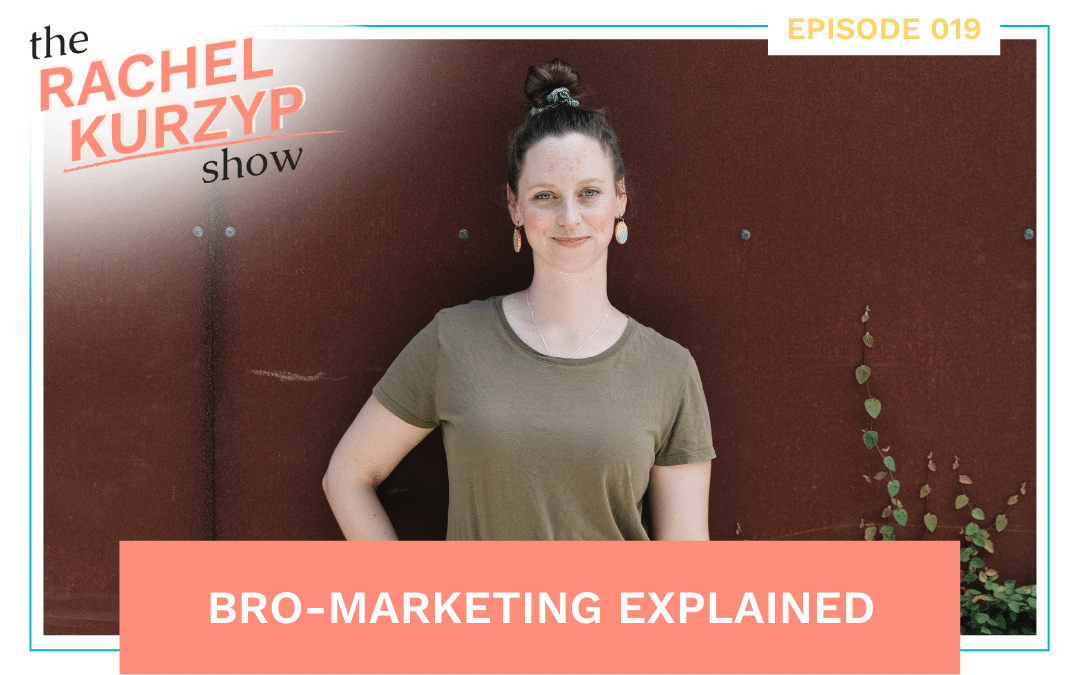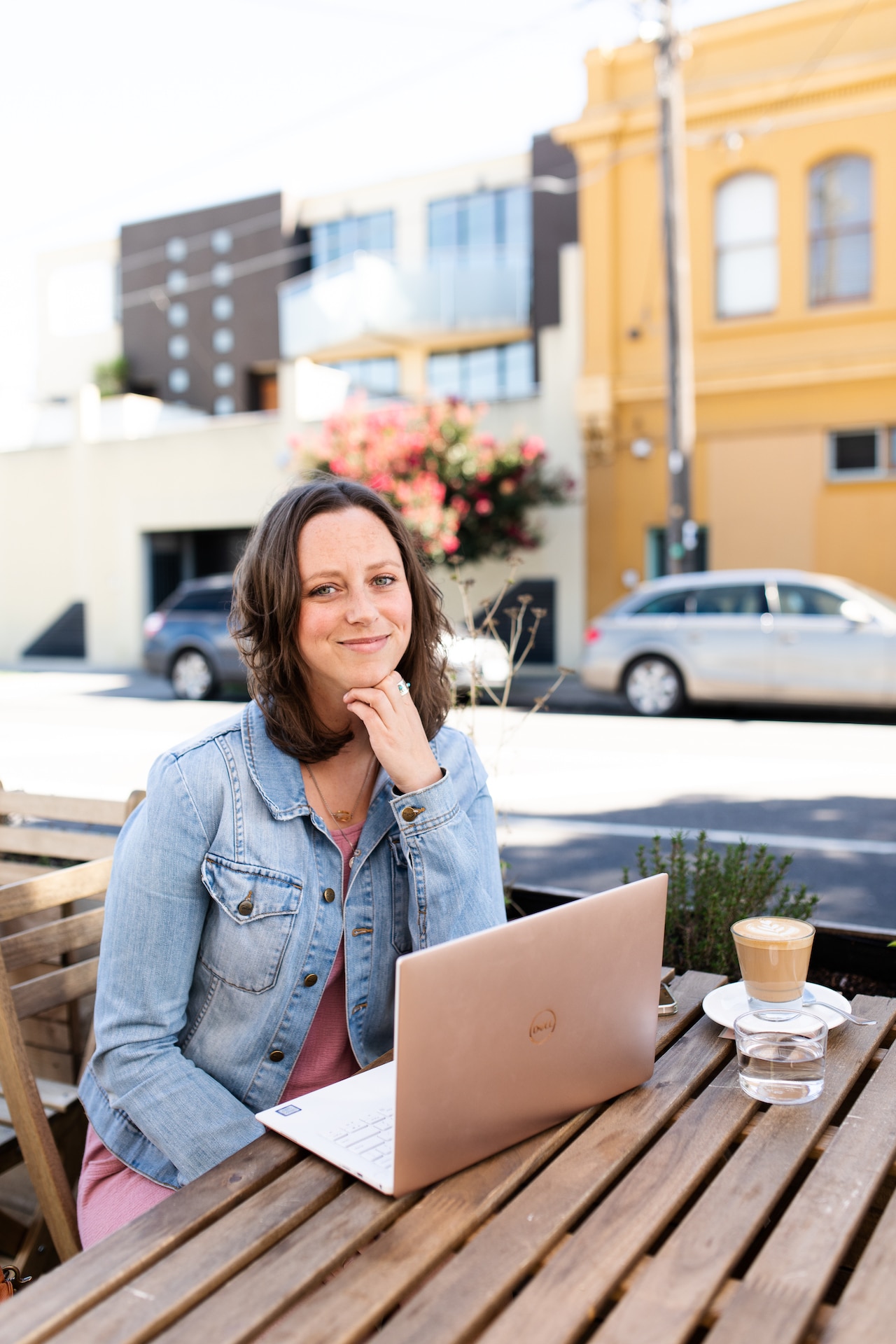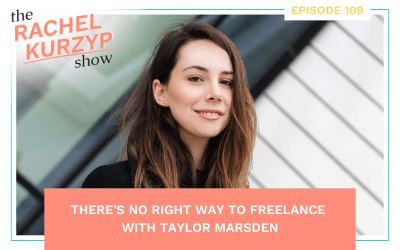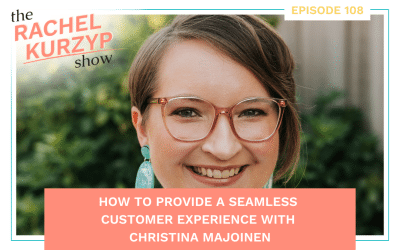Welcome to The Rachel Kurzyp Show
You’re listening to episode 19.
I recently attended a Bro Marketing Overthrow workshop by Dr Michelle Mazur (author of 3 Word Rebellion – which I love too!).
And I loved it because Michelle was able to clearly articulate what I’ve been thinking for years.
Thanks to her extensive research, I’m now finally able to say that I dislike bro-marketing so much because it removes our agency by bypassing the decision-making process.
I know you’re going to appreciate her bro-marketing definition that I share in today’s episode too.
It’s because of thought leaders like Michelle that the online business space finally has the information we need to start calling out bro-marketing.
So due to popular demand, Today I’m going to chat all things bro-marketing – specifically what it is, how to spot it in the online space and how you can assess your own business to ensure you’re not unknowingly using any bro marketing tactics.
So what is bro-marketing?
The term has been around for a few years and it’s a way of describing the gross and sleazy car salesman tactics that we all know and hate. In a nutshell, bro-marketing is self-serving, short-term gain sales tactics that are used to disempower clients and remove a customer’s agency so that they can be easily manipulated into buying a service or product.
Bro-marketing manipulates natural and important human psychological triggers like scarcity, likeability, authority, trust and reciprocity. For example, when something is scarce like salt or honey used to be for many traditional people we perceive these items to be valuable and we want to gain access to them quickly because we don’t know when we will have them again.
We see this trigger manipulated online all the time through one-time offers that provide over the top value that say they are only available for the next 5-20 minutes. Think the $27 courses you see on Facebook ads where you get $5,000 worth of value and the answer to all of your business woes.
When we see one time offers like this, the scarcity trigger is activated in our brains and we feel the need to purchase before the opportunity goes away. Small investment offers work best in this instance because they are low risk and therefore we are more comfortable to make a purchase without going through the buying process – that is thinking about our investment logically. For example, is this product what I need? Can I afford it? Should I be implementing what I already know instead?
This is why Bro-marketing is manipulative. These sales and marketing tactics are used to bypass the decision-making process.
Another great example is when celebrity entrepreneurs or lifestyle brands take you behind the scenes and show you private and personal aspects of their business and their lives like the new car they bought and the pool-side villa they’re staying in. Or share about their marriage breakup and imposter syndrome.
Often these stories are carefully crafted to manipulate you into feeling like you know, like and trust them so that you will be more likely to buy their services and products. This tactic is called fabricated authenticity and is used by many online business owners as a way to sell their lifestyle. Want a Lamborghini? A Chanel handbag? A 7 figure month? I’ll teach you how to do this in my [insert program here].
In this instance, our sense of belonging and need to be liked and accepted is being triggered. Again, this psychological need is strong and we can be convinced that the answer is to invest in a service or product and we can buy without going through the decision-making process.
While it’s called bro-marketing, many female entrepreneurs are bro-marketers too. And it’s not limited to the online coaching space either, many service-providers manipulate psychological triggers too. I always get asked to share examples as reference points so I will share two celebrity entrepreneurs here because I’ve named them before: James Wedmore and Jenna Kutcher use bro-marketing tactics amongst many other things and this is why I don’t support them.
If you support them or have purchased for people in the past that you now know use bro-marketing, don’t feel bad. We’ve all been there but I want you to use these experiences as reference points.
If you’ve ever felt duped after buying, out of the loop when people are talking about their programs or that you’re doing something wrong and you need to find the secret, make a note of this because these are often the feelings that come up when we have been a victim of bro-marketing.
So how can you ensure that you aren’t unknowingly using bro-marketing tactics and making your clients and customers feel this way too?
The first thing you can do is go back and listen to episode 2 on Unethical marketing tactics you should avoid and episode 16 on how to use marketing tactics for good or evil. In these episodes, I share more bro-marketing examples and how to make decisions in your business about how you want to use common tactics like countdown timers.
Because it’s not the tactics themselves that are unethical, it’s the intent behind them.
The second thing I’d like you to do is to grab a pen and paper and create your business values and ethics. Ask yourself questions like: what do I stand for? How do I want my client or customer to feel? How do I want to sell? What do I want my sales process to look like?
Your values and ethics will guide your sales and marketing decisions, ensuring that you and your clients feel empowered and informed at all times.
Thirdly, I’d love you to review your sales and marketing content. Is it aligned with your values and ethics? Can you edit the copy to ensure your client and customer has agency? For example, removing words like irresistible and no-brainer. And are you being honest in your marketing tactics? If your offer really is only for a short time or you do have 5 spots available in your program, that’s ok. But don’t use psychological triggers to create fake urgency, scarcity or FOMO.
And finally, I’d also recommend continuing to educate yourself on this topic. A great place to start would be to follow Maggie Patterson and Dr Michelle Mazur on Instagram. They share weekly content on celebrity entrepreneurs and bro-marketing.
I hope this episode has given you a solid starting point into understanding bro-marketing. It’s a topic I’m really passionate about and an area that I’m exploring more deeply in my 6-month mastermind Freedom to Scale.
This mastermind is where female leaders scale their profitable, sustainable and ethical business their way on their terms. It’s been 12-months in the making and I’m so happy that it’s finally happening.
If you’re ready to scale your done-for-you signature services and launch buy-me-now courses and digital products so you can make bank, hire help and get visible then this high-touch Mastermind may be for you.
Head to rachelkurzyp.com.au/FTS to learn more.
Thanks so much for tuning into today’s episode.
If you’ve found what I’ve shared valuable please leave a review and hit the subscribe button so you don’t miss when a new episode drops every Wednesday.





